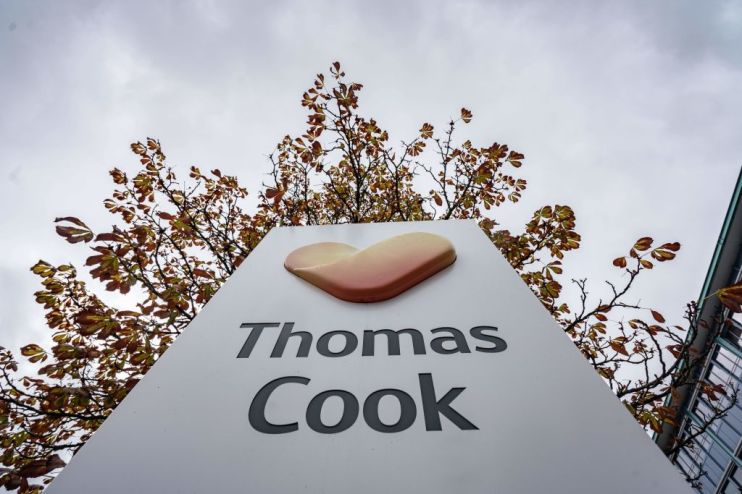Revealed: Thomas Cook went bust with liabilities of £9bn

Thomas Cook collapsed with total liabilities of £9bn, it has emerged this morning, making the immediate financial toll of the company going bust even greater than that of Carillion in early 2018.
In a report on the failure released this morning, it has emerged the travel operator owed £585m to customers and £45m to employees when it hit the wall.
Read more: Thomas Cook: MPs launch inquiry into ‘corporate greed’ at collapsed holiday giant
Meanwhile, £5.7bn was owed to other group companies, and £1.7bn was owed to banks and other lenders, according to the Insolvency Service.
“The position regarding intercompany trading, assets and liabilities is still to be fully determined,” senior official receiver and liquidator David Chapman said.
The report only refers to 26 Thomas Cook Group companies which were wound up on 23 September.
A further 27 UK companies in the group were wound up on 8 November. The Official Receiver will report separately about them “in due course”.
Thomas Cook’s eye-watering liabilities come to even more than those of outsourcer Carillion, which collapsed in early 2018 owing £7bn in total.
The notice to creditors shows that only between £176m and £244m has been recouped through selling off Thomas Cook assets such as retail outlets, aircraft landing slots, intellectual property rights, subsidiary and joint venture businesses and the collection of currency and cash from agency branches.
The report shows directors put the group’s financial deterioration down to a number of factors:
- a reduction in demand across its geographical trading areas due to a change in customer holiday patterns
- customer uncertainty caused by the decision of the UK to exit the European Union, which was originally proposed for 29 March 2019, which led UK customers to delay booking holidays in Europe
- the hot weather in the UK during the summer of 2018 which caused potential customers to take holidays at home
- increased challenges from online competitors, who focused on lower-cost structures, unlike the traditional Thomas Cook retail travel outlets
“Due to a reduction in the group’s income because of the above factors the board took the decision to write down the value of the goodwill shown in the group’s accounts by £1.1 billion in the 2019 half year results,” the Chapman said.
Read more: Thomas Cook bosses point finger at government as MPs slam high pay
“A number of options were pursued in an effort to address its financial difficulties with the final attempts to recapitalise the group failing in September 2019.
“As a result of which, the directors determined that the group was insolvent on both an assets and liabilities and a cashflow basis, and it was necessary to petition for the winding up of the companies within the group.